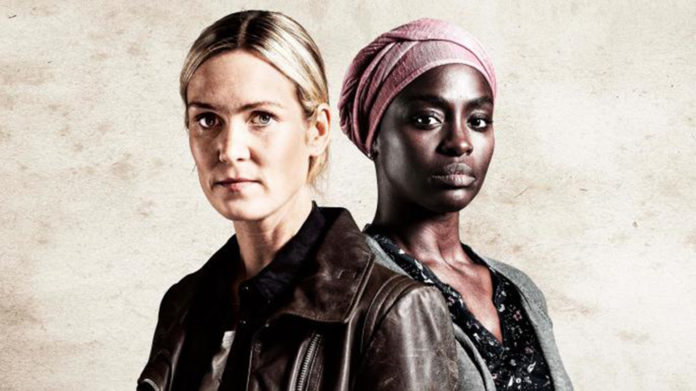
I vaguely remember from my childhood something about Ireland being the land of a hundred thousand welcomes, and something too about a crock of gold of some description, writes Donal O’Keeffe.
You might have heard recently of Eric Zhi Ying Xue, a nine-year-old Bray student. Eric was born here, and he has an Irish accent, but he’s not an Irish citizen, because neither of his parents are Irish citizens. Eric is nine, and he’s facing deportation.
You might, too, have heard US President Donald Trump talking about abolishing “birthright citizenship” in the US, which would mean that babies born there are no longer automatically citizens. He’s horrible, isn’t he? At least here in kind and gentle Ireland we would never fall for a blowhard millionaire chancer stirring up racial hatred against a vulnerable, marginalised and unpopular minority.
Oh.
Er, well, okay, at least here in kind and gentle Ireland we would certainly never decide to deny citizenship to babies born here.
Oh.
You might not remember the Twenty-Seventh Amendment, or the vote which led to its passing.
I’m always astonished by the number of people who tell me they have absolutely no recollection at all of the time we decided that two babies born on the same day, in the same Irish maternity hospital, were not equal; and the number of people who have completely forgotten that time we finally put the complete lie to the Proclamation’s promise to cherish all the children of the nation equally.
Well it goes like this:
In an effort to ensure that people born in the North of Ireland would not be denied Irish citizenship, the 1999 Nineteenth Amendment had inserted into the Constitution the following phrase:
“It is the entitlement and birthright of every person born in the island of Ireland, which includes its islands and seas, to be part of the Irish Nation. That is also the entitlement of all persons otherwise qualified in accordance with law to be citizens of Ireland.”
This accidentally created a constitutional right to Irish citizenship by birth.
The Fianna Fáil/PD coalition government decided in 2004 that 'Something Had To Be Done'.
The then-Justice Minister, Michael McDowell, championed the proposed Twenty-Seventh Amendment, whereby children born in Ireland would not be Irish if neither of their parents were Irish.
The Government quoted the Masters of the maternity hospitals as claiming the maternity wards were swamped with non-national mothers just off the plane and about to give birth. Then it transpired that the Masters had not said this, and in fact the number of women presenting in the late stages of pregnancy was quite small, and half of those women were Irish.
Some opposing the proposed amendment said the Government was stirring up racist sentiments in order to boost its own vote in the local and European elections which would occur on the same day as the referendum vote.
In the lead-up to the referendum, John Waters, at the time a columnist with the Irish Times, wrote several columns – as he later put it – “opposing the amendment from a variety of perspectives – technical, ethical and political.”
The week of the referendum, Waters said a man came up to him and said “You’re missing the point. This is about keeping the ni**ers out.”
Before the referendum, Michael D Higgins TD, then, as now, a man never afraid to go against the populist grain in defence of the vulnerable, the marginalised, and the unpopular, urged a No vote.
The future President said he “could not accept that it is desirable or just to introduce a change that will determine that two children, born in the same maternity hospital on the same day, will enjoy different legal and constitutional rights.”
Michael D was right, of course, but in the end it didn’t matter. In a turnout of 60%, the referendum was passed by an 80% landslide.
If there is any, grim, consolation, it’s that if the Government had indeed intended to profit electorally by appealing to voters’ basest instincts, they got their comeuppance.
Fianna Fáil received what George W Bush in 2006 called “a thumping”, what Barack Obama in 2010 called “a shellacking”, and what Donald Trump in 2018 called “a tremendous success”.
In the Irish Examiner, Harry McGee and Fionnán Sheahan called it Fianna Fáil’s worst electoral performance since the 1920s. Obviously, De Paper couldn’t foresee 2011.
These days, I would agree with pretty much nothing John Waters has to say, but in the wake of the referendum, his column in the Irish Times was, I think, the finest thing he has ever written.
“There will be many collateral consequences from Friday’s vote, not all of them bad,” he wrote.
“One is that we can reasonably expect not to have to hear any more preaching from Michael McDowell about pluralism and inclusiveness.
“Another is that the Catholic clergy must delve into its collective imagination in search of new material for Christmas sermons, the standard lecture about the wickedness of the innkeeper who turned away the Holy Family having been rendered redundant by the disgraceful fence-sitting of the Catholic hierarchy in this campaign.
“A third is that Ireland can hope never again to become poor and have to send its children out into the world in search of livelihoods and opportunities.
“Certainly, we have provided ourselves with a massive incentive to ensure such a fate never again befalls us. For now we have established a benchmark for the way we can expect our children to be treated if it does.”
Follow that, you might say, and I can’t, except to say there you go, folks, there you have the 27th Amendment.
There you have the reason Eric Zhi Ying Xue, and God knows how many other children (but of course not a fraction of the number we were told were being brought here for 'birth tourism') live their whole young lives in Ireland, and speak with Irish accents, and have Irish friends, and Irish dreams, and consider themselves Irish.
But they’re not Irish, these kids with Irish accents. They can be deported with their parents, overnight, these Irish kids with Irish accents, because they are not Irish.
They’re not Irish, these Irish children with Irish accents; they are not Irish because we decided consciously, back in 2004, that the Ireland of a hundred thousand welcomes crock of gold is a crock of something else entirely.







